What These Memes Get Wrong About Black Women and Work

By:
Ronald Reagan introduced the world to the "Welfare Queen" more than 40 years ago.
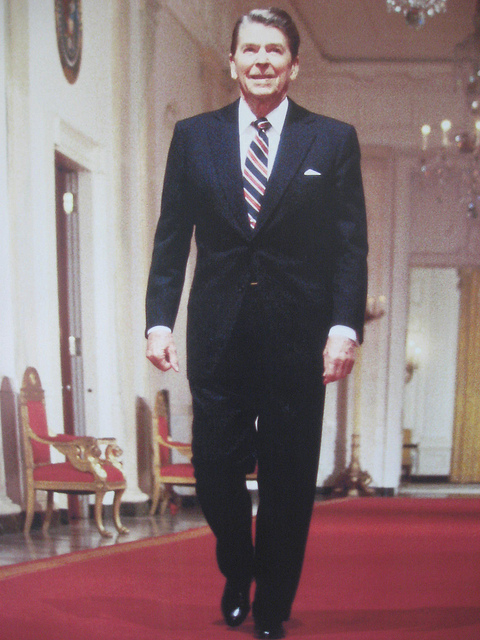 JBrazito - flickr.com
JBrazito - flickr.com
During his 1976 run for president, Reagan repeatedly told the story of "Linda Taylor," a black woman of many aliases who reportedly bilked the government of hundreds of thousands of dollars in social benefits. In highlighting this single individual, Reagan reaffirmed a false but popular belief that black woman would rather scam their way to a living than work for it.
That false belief is still alive today, and commonly shared through memes.
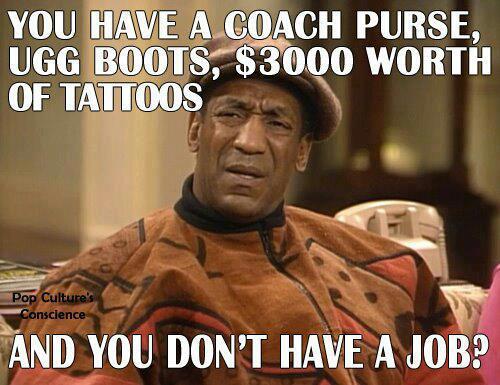 One Woman Discernment - wordpress.com
One Woman Discernment - wordpress.com
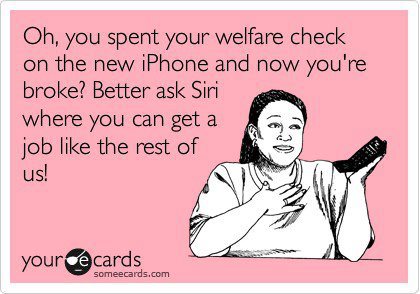 Squarespace - squarespace.com
Squarespace - squarespace.com
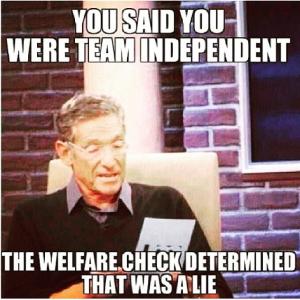 Kappit - kappit.com
Kappit - kappit.com
In the dog-whistle world of politics, the “Welfare Queen” has always been a lazy, black woman, often seen as having many children and no job. This racist, classist, and misogynistic image is simply untrue. Black women, who are paid 64 cents for every dollar a white man makes, are some of the most active participants in the U.S. labor force.
For example, in 2015, 59.7 percent of black women were employed or looking for work as compared to 56.4 percent of non-Hispanic white women. That same year, former Mississippi State Rep. Gene Alday (R-Walls) was forced to apologize after he claimed that he was "from a town where all the blacks are getting food stamps and what I call 'welfare crazy checks.' They don't work."
Memes and false statement's like Alday's obscure crucial facts about the lives and backgrounds of those who receive these benefits.
White people, for example, are the largest recipients nationally of the resource arguably most associated with “the Welfare Queen:” food stamps, now known as the Supplemental Nutrition Assistance Program (SNAP). And while it's true that 39-percent of black women have gotten help from food stamps, it's irresponsible to claim that those who receive such benefits are lazy or con artists. In March, the USDA reported that 32 percent of food stamp recipients live in a home with at least one wage-earner, a 13 percent increase from 1989.
It also ignores the reality of who benefits the most from these programs. White working-class people without a bachelor’s degree were the biggest beneficiaries of the U.S. safety net and were lifted above the poverty line by welfare programs more than any other racial group, according to a study by the Center on Budget and Policy Priorities.
They myth of the "Welfare Queen" has real consequences.
In the 1990s, during the administration of President Bill Clinton, black women were again made the face of welfare, including in a notorious 1996 New Republic cover, which featured a black woman who smoked a cigarette while her child nursed on a bottle.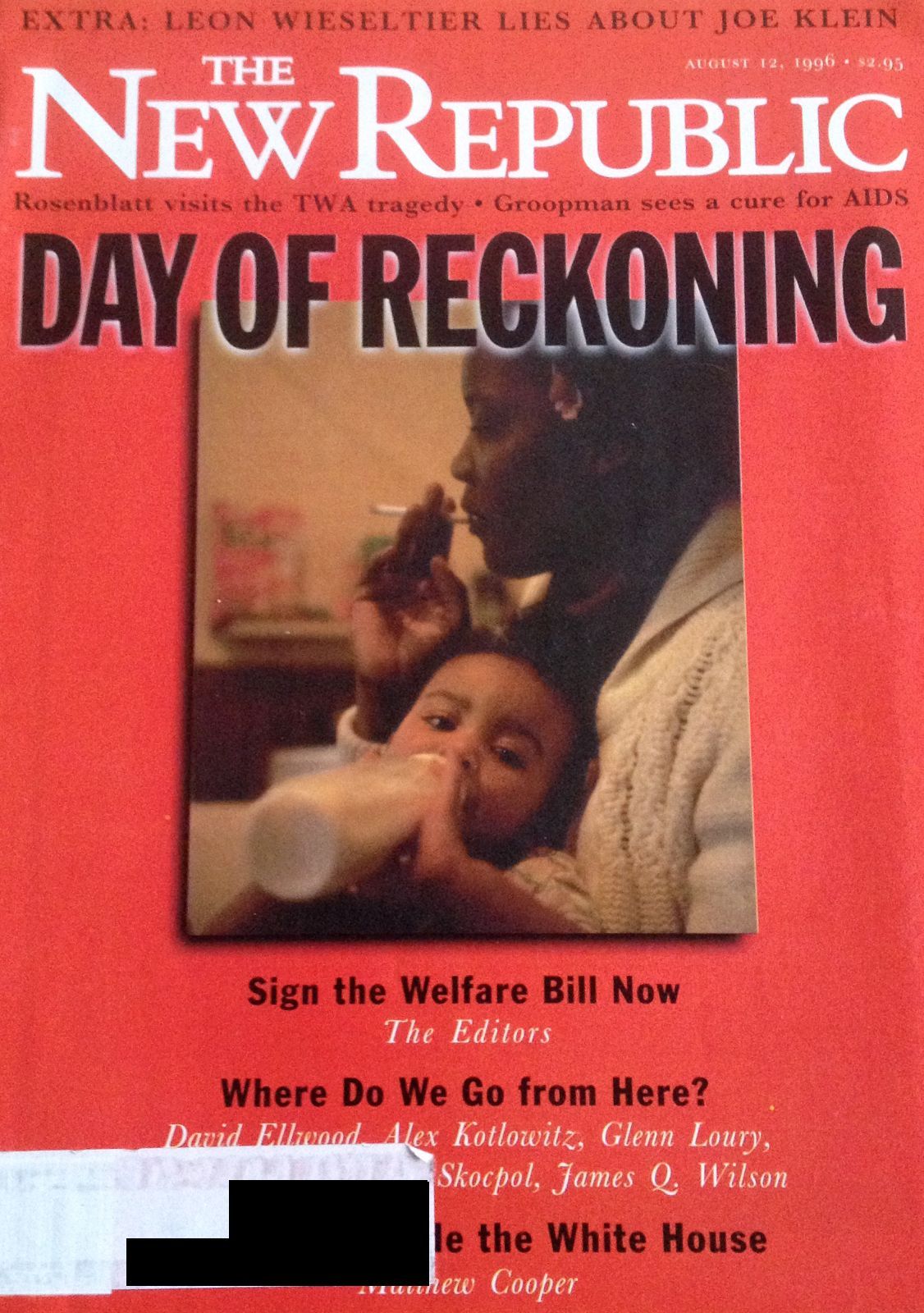 New Republic
New Republic
The pressure worked on Clinton, who signed a sweeping welfare reform bill that capped benefits, instituted work requirements, and altered the funding mechanism in such a way that states received far less funding for recipients. As the Washington Post reports, while various studies of the reform bill indicate its had some success in increasing employment, there's little evidence that it helped to lessen poverty.
In recent years the racially motivated myths surrounding black welfare recipients as lazy drains on the economy has repeated itself as attacks on other groups, such as undocumented immigrants, despite the fact that undocumented immigrants are not qualified for welfare benefits.
President Donald Trump, for example, has even gone so far as to argue documented immigrants should have to wait five years before they are eligible for welfare in spite of the fact that such a policy has been in place for over two decades.
Republican strategist and Reagan advisor Harvey LeRoy Atwater described in a 1981 interview how Republicans went from promoting white supremacist activity through racial slurs in the 1950s to empowering the same base by using more abstract, economic associations. If memes are ever going to fight back against this prejudice, they'll need to assert welfare and therefore welfare recipients are worth protection.
